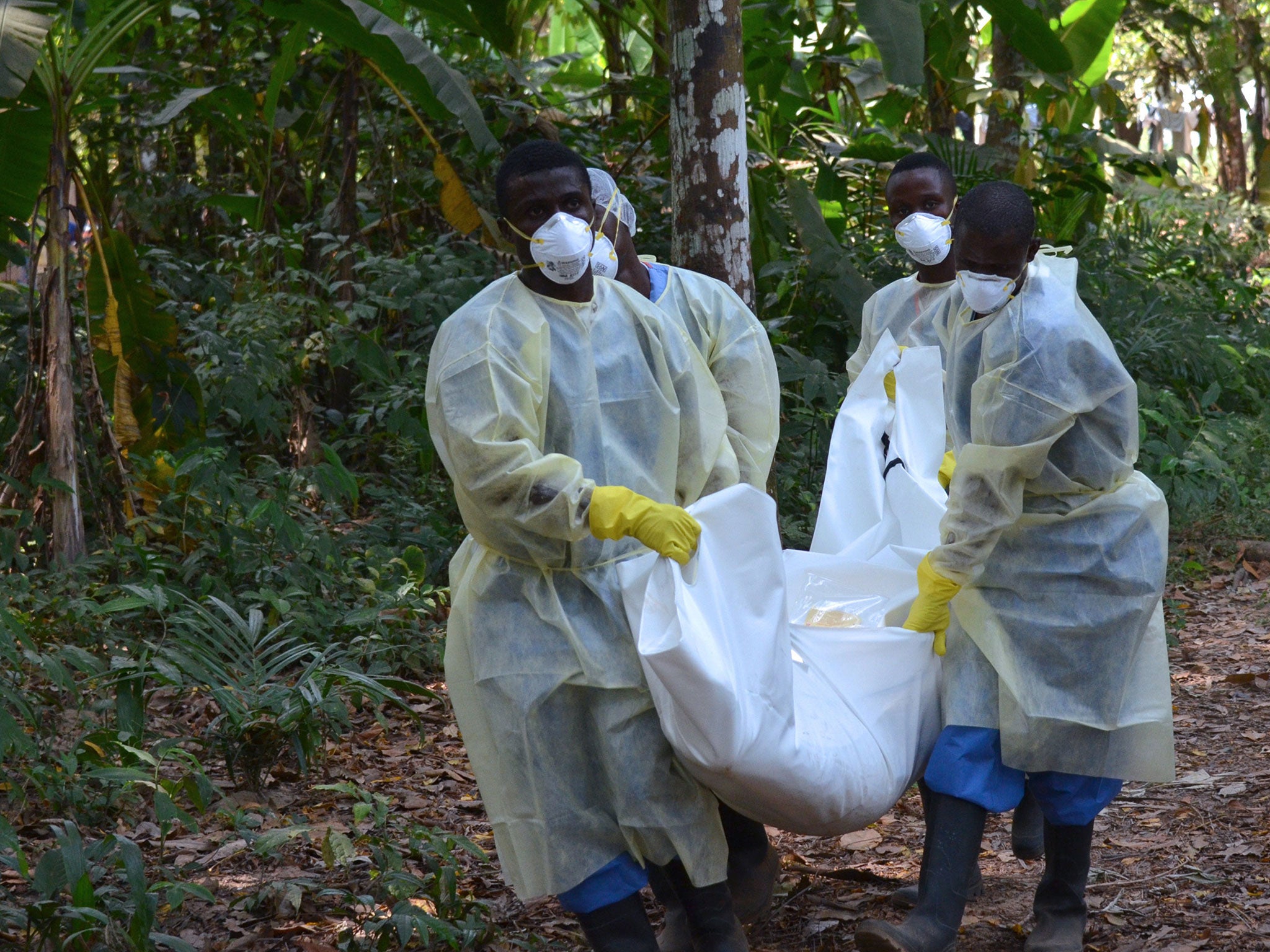Ebola: Scale of latest epidemic is unlikely to be repeated, says expert
Professor Paul Hunter says a new study has shown the disease is not as contagious as many people had thought

The world is unlikely to experience another Ebola outbreak as bad as the latest epidemic in West Africa which has killed more than 11,000 people since it began in 2013, according to an expert.
A study of how the virus was transmitted has shown that Ebola is not as contagious as many people had believed providing patients in the later stages of the disease are quickly transferred to hospital, said Professor Paul Hunter of the University of East Anglia, who led the research.
Knowing at which stage Ebola is most likely to be transmitted, combined with the possibility of a new vaccine under development, means future outbreaks are unlikely to become the full-scale epidemic seen in western Africa, Professor Hunter said.
“I think that because of the vaccine and what we know about the virus now, the chances of seeing this kind of epidemic ever again is relatively remote,” Professor Hunter said.
The latest Ebola outbreak was by far the biggest on record. There were 28,598 confirmed, probable and suspected cases in Guinea, Liberia and Sierra Leone, with 11,299 deaths, most of which occurred in late 2014 when action was taken after the WHO finally declared a medical emergency.
Only one case, a child born in an Ebola treatment centre in Guinea, has been reported in the past 21 days. The WHO declared earlier this month that Ebola transmission has stopped in Sierra Leone. There have been no recent cases in Liberia.
A review of 31 reports on Ebola dating back as far as 1967 has found that it is only when patients are in the late stages of the disease that they pose the greatest risk to the people around them. Before then, only people in close, direct contact with patients or their bodily fluids are at risk, the study found.
“There has been a lot of anxiety about casual contact with infected people at airports or markets and so on but we really don’t have to worry about that. What we do need to worry about are the relatives or health professionals who care for patients in the later stage of the disease,” Professor Hunter said.
“The Ebola virus is not that generally infectious. You can live in the same house as a case and provided you are not in close contact with bodily fluids, you’re not at that great a risk. The real risk is if you are caring for someone up to death,” he said.
The study, published in the International Journal of Epidemiology, is the first systematic review of the risk factors associated with the transmission of Ebola. In a separate study of the Ebola epidemic, published in The Lancet, a group of 19 experts has criticised the initial response to the outbreak by the WHO, which delayed declaring a medical emergency despite evidence the virus was spreading dangerously in early 2014.

“The most egregious failure was by the WHO in the delay in sounding the alarm. People at WHO were aware that there was an Ebola outbreak that was getting out of control by spring [2014] … and yet it took until August to declare a public health emergency,” said Professor Ashish Jha, director of the Harvard Global Health Institute. “The cost of the delay was enormous,” Professor Ashish said.
Join our commenting forum
Join thought-provoking conversations, follow other Independent readers and see their replies
Comments